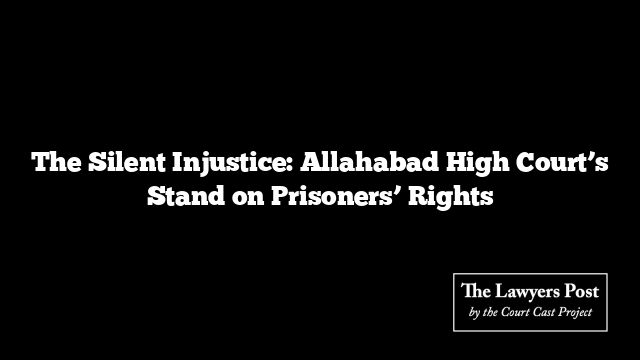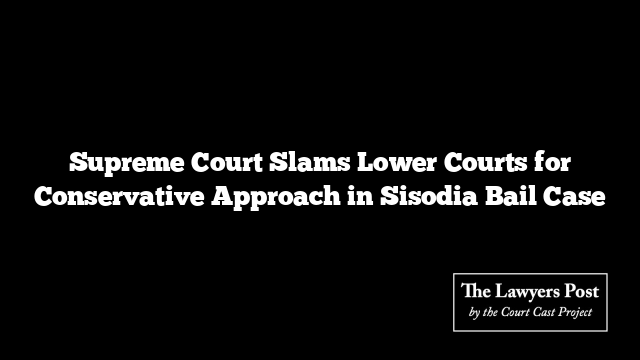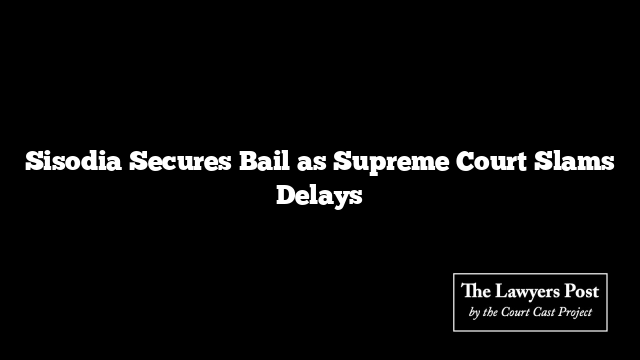In a recent ruling, the Allahabad High Court shed light on a troubling reality that stands in stark contrast to the nation’s celebrations of freedom. While the country basks in the glow of its “Amrit Kaal of Azaadi,” a segment of the population remains isolated behind prison walls, cut off from the very constitutional rights that define their citizenship.
Justice Ajay Bhanot, while presiding over a series of bail petitions, voiced deep concern about the state of these prisoners. One such case involved an accused who was granted bail after languishing in prison for over 14 years. This delay, and others like it, are symptomatic of a larger issue: the failure of the legal aid system, particularly for those from marginalized backgrounds.
In most cases brought before the Court, the accused had been without legal assistance for more than a decade. This lack of support has led to severe delays in bail applications, leaving prisoners without recourse and without hope. The Court observed that this pattern of neglect is not new but rather a recurring issue that has repeatedly been ignored.
The Court further highlighted the plight of those whose bail applications remain untouched, gathering dust as no one advocates on their behalf. These prisoners, isolated and unaware of their legal standing, are effectively voiceless within a system that has failed them. The Court’s ruling pointed to a systemic failure, one that indicts the very mechanisms designed to protect these individuals.
In response, the Court issued a series of directives aimed at ensuring that prisoners receive timely legal aid. The ruling underscored the correlation between the right to legal aid and the right to seek bail, emphasizing the duties of magistrates, trial courts, District Legal Services Authorities (DLSA), and jail authorities in this regard.
The Court made it clear that the denial of legal aid is not just a procedural lapse but a violation of fundamental rights. It stressed that Articles 14 and 21 of the Indian Constitution, which guarantee equality and protect life and liberty, are engaged when prisoners are denied legal aid.
To remedy this, the Court outlined specific duties for magistrates, trial courts, and other authorities. It emphasized the need for proper coordination between different branches of governance and the utilization of IT facilities to ensure that information about prisoners is easily accessible. This, in turn, would enable the courts to provide timely legal aid.
The Court also called for the use of digital platforms to assist in the management of legal aid for prisoners. By consolidating and upgrading existing data, the capacity of the trial courts, DLSAs, and jail authorities to process legal aid requests would be significantly enhanced.
Further, the DLSAs were directed to maintain comprehensive records of each prisoner, detailing their need for legal aid and the status of any bail applications. Jail authorities were given similar instructions, ensuring that no prisoner is left without the necessary support.
In closing, the Court reflected on the profound importance of liberty, noting that in matters of freedom, every moment counts. It reaffirmed the Indian Constitution’s guarantee of equal justice for all citizens, calling on all institutions of governance to uphold this promise with unwavering resolve.
This ruling serves as a powerful reminder that justice delayed is justice denied, and that the light of constitutional liberties must reach every corner of the nation, including its prisons.





